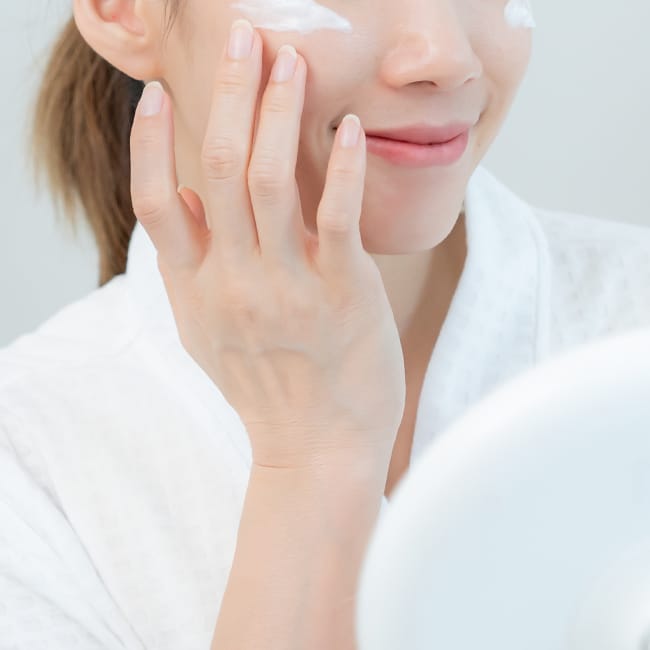This is an archived article and the information in the story may be outdated. Please check the time stamp on the story to see when it was updated last.
It’s no secret that getting a tan is one of the top goals of beachgoers every summer, and soaking in the rays does undoubtedly provide a healthy dose of vitamin D which can have some significant benefits to your overall well being as an essential nutrient. That being said, not taking proper care of your skin when it’s exposed to the sun can come with dangerous consequences as severe as melanoma and as frustrating as sun spots and damage.
While there are no skincare products which can entirely reverse the impact of the sun on your skin, there are ingredients which can help to fade dark spots while preserving your complexion from future damage. We spoke with NYC Dermatologist Dr. Hadley King to find out which ingredients should be prioritized in the ideal skincare regimen for sun protection, so below is your comprehensive guide.


Antioxidants
Integrating an antioxidant formula into your morning and evening routine is great for fading dark spots caused by sun damage while doubling as a solution for fighting off fine lines and wrinkles. “Topical antioxidants, e.g. vitamin C, are also helpful in protecting the skin from damage by free radicals, most notably from UV rays and pollution,” notes King. “Topical antioxidants combined with sunscreen have been shown to provide more sun protection compared to sunscreen alone.” Break out your vitamin C serum in the morning after you’ve washed your face and you’ll be set with full-day protection.
Anti-Aging Peptides
Peptides are not only useful in the anti-aging capacity, but they can also help sun damaged skin by sustaining collagen production and contributing to the overall strength of your skin’s barrier. “[Peptides] can act by modulating the release of neurotransmitters,” explains King, basically boiling down to telling the body to build elastin in your complexion. “The anti-aging potential of peptides was first shown years ago when NIH-backed research on the ingredient Matrixyl (palmitoyl pentapeptide-3) showed its ability to stimulate collagen production in skin,” she adds. Paired with antioxidants such as vitamin C serum, peptides can be useful for reducing both sun damage and signs of aging.

Sunscreen
This answer might seem obvious, but applying sunscreen to sun damaged skin will naturally preserve your complexion from further harm, keeping worsening age spots at bay. “You may feel that it's too late for sunscreen to make a difference if the skin is already sun damaged, but not so,” says King. At any age, sunscreen should be a skincare staple applied every morning regardless of whether or not you plan on sitting out in the sun. This will do the most to keep sun damage from ever developing, creating a protective barrier on top of the skin. “Regular daily use of SPF 15 (30 is even better) sunscreen can reduce your risk of developing squamous cell carcinoma by about 40%, and lower your melanoma risk by 50%,” adds King. “It also helps prevent premature skin aging caused by the sun, including wrinkles, sagging and age spots.”
Retinoids
Finally, retinoids are not only a powerful anti-aging solution, but can also work to improve sun damaged skin as well. “Retinoids work by binding to retinoic acid receptors, which then can act as transcription factors and affect gene expression. This makes them very powerful and able to produce significant changes in the skin,” explains King. “They increase the turnover of skin cells, reduce the tendency of cells and keratin debris to clump together and clog up pores, increase collagen production and decrease discoloration.” Fading age spots as well as wrinkles, retinoids may be one of the best skincare products for treating sun damage in particular.


























